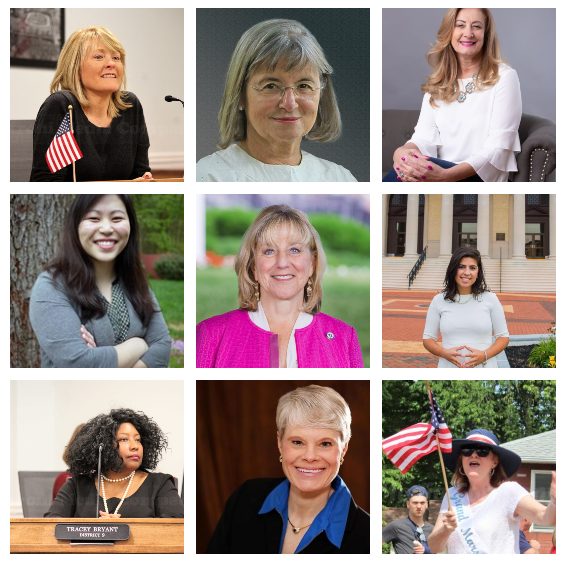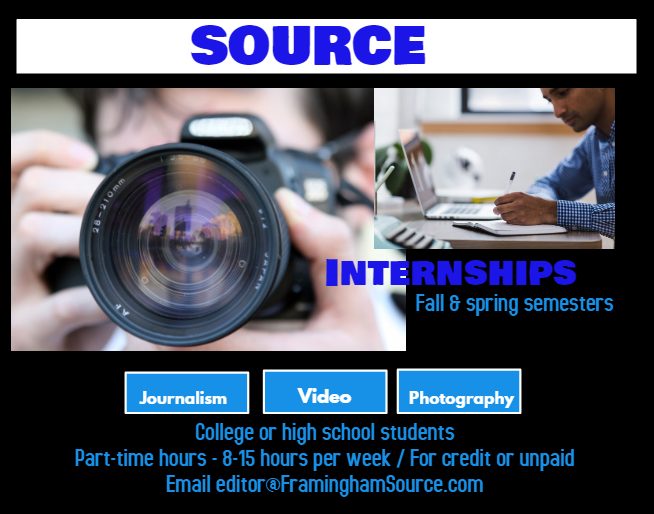
FRAMINGHAM – Today, August 26, 2020, marks the 100th anniversary of the adoption of the 19th Amendment.
The 19th Amendment prohibits states and the federal government from denying the right to vote to citizens on the basis of sex. This led women to have the right to vote nationwide.
While some states and territories, particularly in the West, granted women the right to vote as early as the 1870s, it did not allow for universal suffrage for women in many other states in the country.
Today, women’s right to vote has allowed women to participate in politics through volunteering, activism, and even being elected or appointed to office.
Currently, the United States Congress has a total of 101 female U.S. Representatives and 26 female U.S. Senators, making the 116th United States Congress have the most women in U.S. History.
[broadstreet zone=”51611″]
In Massachusetts, women currently hold such offices as Lt. Governor Karyn Polito, Attorney General Maura Healy, State Treasurer Suzanne Bump, and the current Massachusetts Senate President Karen Spilka.
However, even as the number has grown, women still hold less than 25% of governmental positions nationwide.
While women have been given the right to vote since 1920, that right has only been given to white women for 100 years.
When the Amendment was adopted in 1920, Native Americans weren’t even considered citizens until 1924 and a Native WWII Veteran had to petition for the right to vote in 1948. Many Asian Americans were also not considered citizens due to being primarily immigrants. While African American women were given the right to vote on paper, this truly didn’t come to fruition until the passage of the Voting Rights Act of 1965 due to poll taxes and literary tests. Poll taxes and literary tests also kept many Latina women from voting until the passage of the 1975 extensions of the Voting Rights Act requiring the government to provide bilingual ballots.
There were also other limitations for women to achieve political power after the adoption of the amendment. Women had to lobby their state legislators, bring lawsuits, and engage in letter-writing campaigns to earn the right to sit on juries.
[broadstreet zone=”70106″]
Many states didn’t allow women on juries for more than 30 years after the adoption of the amendment. Women continue to face obstacles when running for elective offices, and the Equal Rights Amendment, which would grant women equal rights under the law, has still yet to be realized.
However, despite all of the obstacles still in place with both institutionalized misogyny and institutionalized racialized misogyny, many women from all walks of life, no matter their race, ethnicity, religion, national origin, disability status, socioeconomic status, or sexual orientation, have still strived to provide a voice for themselves, their fellow women, and their communities.
SOURCE reached out to various women involved in Framingham politics over the years to ask them to talk about how far women have come in politics and how far women still need to go.
Senator Karen Spilka the current Massachusetts State President, said she had “been told many times by men that it is ‘not my time’ to run for an office.”
The Ashland Democrat also gave advice for women and girls who wish to go into politics: “Follow your heart and your passion. I have been told many times in my career that it is not my time, to wait for my time to come. You need to make it your time. Stand up, use your voice. If you can’t make something happen, try again with all your heart and soul.”
Representative Maria Robinson (D-6th Middlesex) said that there “is no better time to be a woman in politics than now. We see strong women leaders across the country and across the world, deftly managing multiple crises, not least of which is COVID-19. Still, we are often treated as lesser or unable to lead because we have families at home or have more emotional responses to situations. I firmly believe that emotion and empathy make good leaders who are able to listen to all sides of an issue and develop a thoughtful process that brings people together. Women continue to make up a smaller fraction of government leadership than we do the overall population, and we need to take a hard look as to why that is and continue to cultivate a new generation of leaders that look like our general populace.”
Robinson also discussed the prevailing misogyny present at the Massachusetts State House: “Just last year, two women colleagues and I fought against a corporate tax break; during that debate we were ignored on the House floor when we rose to speak as was our right. “
But, she still remains hopeful for the future. “We have a ways to go in all fields, but on this 100th anniversary, I feel hopeful in the continuation of our progress. Let’s keep working together to make more progress!”
SOURCE reached out to Mayor Yvonne Spicer, but she never responded to the email.
[broadstreet zone=”58610″]
City Councilor-at-Large Janet Leombruno discussed the history of politics in her family as she grew up in Framingham.
“Growing up I was surrounded by women active in our community. My parents encouraged my brother, sisters, and I to give back to our hometown. My mother was one of my earliest examples. She was elected to the Library Board of Trustees during the 1970s. 60 years after the adoption of the 19th Amendment, Claire Lavin became the first woman in Framingham’s history to win a seat on the Board of Selectmen in 1980. My Dad, Ed, was her campaign manager, and I naturally became involved as a volunteer. Her win was a victory for all women in Framingham and paved the path for our future women leaders in Framingham. Once that ceiling was cracked, the sky was the limit,’ said Leombruno.
In a call of action, leombruno said “may we remember those women leaders who gave of themselves to serve our community, may we encourage those future women leaders who want to step up, and may we continue to fight for equality, not just in government, but in our everyday lives.”
City Councilor Tracy Bryant talked about the importance of having camaraderie with other women when in politics,
“During the mingling part of the evening, we shared our common lament of being far too busy. We shared our experiences of women working with men in formerly male-dominated domains. Although we were discussing challenging situations, it was so uplifting to share our personal experiences with others who had similar experiences. We were all exhausted when we came in, and now we were being revived because we were able to talk without having to explain or justify<‘ said Bryant who represents District 9. “Even though we started out wanting to figure out how to balance our lives and take things off our plates, with all the laughter and camaraderie, we were proposing solutions after every story. We were committing ourselves to more projects, more work, more time, more to try to balance. Yet we left lighter, stronger, and even more passionate about making life better for everyone.”
Bryant also discussed that while strides had been made, it was important to focus on the dismantling of patriarchal structures such as the Old Boy’s Club that turn away women before they enter and keep women trapped once they are inside.
She stresses the importance of celebrating how far we’ve come and plan for how far we need to still go, stressing that “All of these gains are worthy of celebration, but 23 and 26 percent are nowhere near 50%.”

“The presence of women in seats of power has been a boon to improving life in America. The laws are in place to allow us equal access to the halls of power, and there is even tacit acceptance of it. Now we have to become singular in dismantling the unequal treatment of women, even in these political bodies. As an old tag line stated, “We’ve come a long way, baby!” But we can’t sit down just yet!”
District 1 City Councilor Christine Long discussed the similarities between working within the construction industry and being a politican with both being male-dominated industries.
“The first time I ran for an elected position I found that I had more supporters than I thought existed! Many voters, both male and female, were excited that I was running for a position that was always predominantly occupied by men. Being a self-employed business owner and operator in the construction industry paved the way for me to compete in a male driven and controlled political environment,’ said Long. “The construction industry is much the same. I believe that regardless of one’s sex, that fair play and practice shapes who you are and how successful you will be in all political, business and personal endeavors.”
District 7 City Councilor Margareth Shepard, the first Brazilian-American elected to office in Framingham talked about what challenges can disproportionately affect women more than men in politics.
“Women still facing more challenges than men during a political campaign. Financial resources are one of the most difficult. That is a direct consequence of the gender pay gap. More men make more money and can afford to make higher political donations while women’s contributions are fewer and lower. The same occurs in education,” said Shepard. “We have more men graduating in economics, government, and political studies than women providing them more qualifications for the competition. New organizations like EMILY’s List, and Emerge” in Massachusetts are doing a great job to break some of the challenges and change the playing field. We are still fewer and historically new on politics but we are certainly bringing quality and a new perspective to our government.”
[broadstreet zone=”59948″]
Former City Councilor at Large and former Chair of the Board of Selectmen Cheryl Tully Stoll talked about how she got into politics at a young age by an encounter with Geraldine Ferraro, who was the first woman nominated for Vice President in US History.
“I became politically active at the age of 16. So for me, seeing Geraldine Ferraro nominated for Vice President in 1984, when I was 22 was huge and inspiring. During the campaign, a friend of mine gave me a poster of her and Walter Mondale with a photo from a campaign appearance. Ten years later I went to a women’s professional event in Boston where she was the keynote speaker. I brought the poster with me in the off chance of getting it autographed. At the time she was serving as Ambassador to the United Nations Commission on Human Rights. As luck would have it, I was somehow able to dodge the throng of media and was able to introduce myself. She was kind, gracious, and funny. When I asked her if she would be willing to sign the poster she said sure. When I unrolled it and she saw which poster it was she said, “Oh I love this picture, I was wearing my daughter’s dress!” Since we were in a hotel hallway, she suggested that I lean forward and she would lean on my back to sign it. We both laughed. That autographed poster, now framed, hangs in my home and her journey still inspires me,” said Tully Stoll.
Beverly Hugo, the longest-serving member of the Framingham School Committee talked about how politics differs when it comes to education.
“In the classroom, one advocates for each child and provides the nurturing, skills, and supports that the student needs. In the political world, one uses similar skills to try to improve a lot of children, but on a much larger reach. Having been in the classroom and seeing the ravishing effects of poverty, inequities, medically and emotionally fragile children, the plight of students with unstable home life, and inadequate state and federal funding, I have been motivationally charged to address issues that can change the trajectory of students’ lives. Formulating policy ideas, matching an oftentimes inadequate budget to pressing needs, and advocating for favorable legislation for Public Education and school districts was not an opportunity afforded to my sisters from a century ago who had the same visions and desires to advocate for better circumstances and reforms for our children’s education, but were deprived of any means to make their vision a reality,” said Hugo.
School Committee Member Priscila Sousa discussed how sometimes the double standard in politics is not as obvious as one believes to be.
She highlighted a story about her time running for Mayor in 2017 when the gendered microaggressions slipped her by.
[broadstreet zone=”59945″]
“I remember sitting down what was probably my 7th or 8th radio interview of the week to get out the vote. I admit that at that point I was pretty much on autopilot. I was running on very little sleep and a diet of mostly potato chips and coffee. I scrolled through the talking points on my phone screen and checking for any last-minute messages quickly as I was introduced. There was a message from an advisor and friend saying “good luck!” I knew my parents were probably not tuned it because they had heard what I was going to say a million times already, so I was comforted someone who cared about me was listening. Got through what I thought was a pleasant interview and reached for my phone as soon as I was on the air to check for any missed messages. There was about a half dozen from my friend, and he was not happy. I hadn’t noticed at the time, but he counted how many times the interviewer mentioned that I was “pretty.” In the 10 minutes I was there, the count was at 13 (with two bonus mentions of the fact that I was single.),” said Sousa.
“I was objectified in a way I knew would never happen if I was a male candidate. I was objectified in a way that didn’t feel “gross,” as one would expect, but the message was clear that I was more ornamental than anything else. Despite his good intentions, he told his audience I was better seen than heard. Sexism doesn’t always look like the disgusting things coming out of POTUS’ mouth, but it always has detrimental effects on our goal of adequate representation in politics,” said Source who is now the School Committee member for District 5.
Former Finance Committee Chair Elizabeth “Betty” Funk talked about how women who participate in politics, not just through election but through activism, can feel threatened and frightened by male colleagues and competitors for trying to speak their mind on issues.
Funk said that there were a couple of incidents that she was involved in during the 1970s. She talked about how due to the work being done by the Framingham Department of Public Works (DPW), many homes in Framingham were being covered in black tar. This black tar covering resulted in the baskets of ruined laundry. She helped vote out the government officials who were responsible for the complacency in the issue. This is what eventually led to her joining the League of Women Voters.
As part of her work with the League, she held up a sign as a form of protest at the corner of A Street and Concord after dark. She was approached by a group of guys in a truck. They told her to go home because a woman like her shouldn’t be standing out there alone after hours, said Funk They also threatened her. While she didn’t disclose their names, she did say that they were prominent politicians at the time who made the threat.
Funk described the encounter between her and the politicians as a frightening experience. She learned from other women in the League that this was a regular occurrence for women who protested. She vowed to help elect women sympathetic to the struggle and help remove these icky power structures that made her feel unsafe at that moment.

Former District 8 City Councilor Judith Grove, who also was a Town Meeting Member, discussed how women can start to feel underestimated or not respected even when they first get into office.
“When I was a new Town Meeting Member in 2013, Herb Chasen called me to ask if someone would present a petition. I didn’t know anything. I had never been to a Town Meeting. So, I agreed. It was to create a ball court in the Beaver Terrace neighborhood for recreation. So, I got up at Town Meeting. There are five proposals. Turns out, all of them failed. So, I presented mine and people yelled at me. They said things like ‘If they want things, why don’t they get jobs. Why do they have these kids?’ I was truly shocked by it. And when I went back to my seat, a Town Meeting member, who was probably in his mid-30s, put his hand out and stopped me and said ‘Mrs. Grove, how would you like me to show up in your yard tomorrow and build a basketball court?’ And, I said to him ‘I live at 119 Cedar Street, You can come tomorrow.’
But, I realized something. To describe me, I was 68 years old, 4’10”, and knew no one at Town Meeting. So, a decision was made that I didn’t know what I was doing. There was no respect and I was being bullied by this person. I was a small woman, and I think if I had been a 6’2″ man, he wouldn’t have put his hand out. That treatment was my beginning of doing something.”,” said Grove.
Former Selectwoman and former Framingham City Clerk Valerie Mulvey talked how she was on the ballot in 1996 when Framingham first switched from a 3-member (all-male) to a 5 member Selectboard.
“I ran for the two-year seat and I believe that there were nine of us in the preliminary election. There were eventually two of us for the final election. When I ran, I didn’t find much difficulty with being a woman. The only thing that my opponent brought up when I was running was that if I were elected, there would be four attorneys on the Board. At which I told them, I would never apologize for being a Boston College Law School graduate.”

